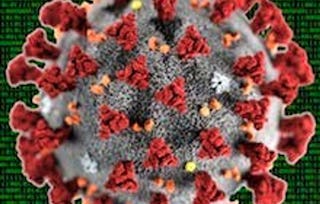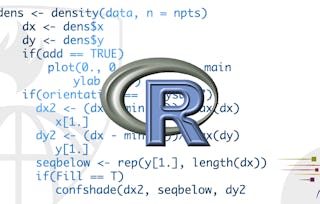The course provides a broad and mainly practical overview of fundamental skills for bioinformatics (and, in general, data analysis). The aim is to support the simultaneous development of quantitative and programming skills for biological and biomedical students with little or no background in programming or quantitative analysis.

Fundamental Skills in Bioinformatics
5 days left! Gain next-level skills with Coursera Plus for $199 (regularly $399). Save now.

(91 reviews)
Recommended experience
What you'll learn
Basics of R
Basics of Python
How to analyze bulk RNAseq count data
How to analyze single cell RNAseq count data
Skills you'll gain
Details to know

Add to your LinkedIn profile
13 assignments
See how employees at top companies are mastering in-demand skills

There are 4 modules in this course
The first module will explore the basics of programming through R and this will include: working in R and RStudio, understanding data types, loops and ifs. Additionally, the module will provide an introduction to RMarkDown as a tool for sharing code that we will use in the coding lectures.
What's included
17 videos2 readings4 assignments
The second module will focus on two aims. Firstly, to master the use of logical values and vectors and its applications in quality control. Secondly, to practice the programming skills while learning how to perform basic statistical analysis. This will include: explorative data analysis, correlation, linear models, T-test, and ANOVA. Finally, we will explore the available resources for R programming.
What's included
20 videos1 reading2 assignments6 programming assignments
The third module will provide the basics of the Python programming language. First, the module will compare Python and R language and learn the programming syntax of Python. Second, the module will work with two key Python modules: pandas and numpy.
What's included
19 videos1 reading4 assignments4 programming assignments1 ungraded lab
The final module will focus on applying knowledge and understanding of programming in the analysis of real RNA-seq data. R will be used for analysing of bulk RNA-seq and Python for single- cell RNA-seq. The results of both analyses will then be integrated. Finally, the module will provide insights in how to gain deeper knowledge and skills in R.
What's included
19 videos2 readings3 assignments4 programming assignments
Instructors

Explore more from Data Analysis
 Status: Preview
Status: PreviewBirla Institute of Technology & Science, Pilani
 Status: Preview
Status: PreviewUniversity of California San Diego
 Status: Free Trial
Status: Free TrialUniversity of California San Diego
 Status: Free Trial
Status: Free TrialJohns Hopkins University
Why people choose Coursera for their career

Felipe M.

Jennifer J.

Larry W.

Chaitanya A.
Learner reviews
- 5 stars
67.03%
- 4 stars
16.48%
- 3 stars
8.79%
- 2 stars
2.19%
- 1 star
5.49%
Showing 3 of 91
Reviewed on Jun 18, 2025
Thanks for the team who made this valuable course. All the best!
Frequently asked questions
To access the course materials, assignments and to earn a Certificate, you will need to purchase the Certificate experience when you enroll in a course. You can try a Free Trial instead, or apply for Financial Aid. The course may offer 'Full Course, No Certificate' instead. This option lets you see all course materials, submit required assessments, and get a final grade. This also means that you will not be able to purchase a Certificate experience.
When you purchase a Certificate you get access to all course materials, including graded assignments. Upon completing the course, your electronic Certificate will be added to your Accomplishments page - from there, you can print your Certificate or add it to your LinkedIn profile.
Yes. In select learning programs, you can apply for financial aid or a scholarship if you can’t afford the enrollment fee. If fin aid or scholarship is available for your learning program selection, you’ll find a link to apply on the description page.
More questions
Financial aid available,







